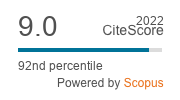Probiotic supplementation during critical windows of gestation might have a significant influence on the infant’s immune phenotype. Swiss albino mice (F0 generation) aged 31 days were supplemented orally with probiotic Lactobacillus rhamnosus GG (LGG); and the supplementation was continued throughout mating, gestation and lactation. The pups (F1 generation) born to them were separated post weaning and received either the same probiotic supplementation as their mothers or were denied supplementation postnatally. Neutrophil phagocytic ability, splenocyte proliferation, immunoglobulins and cytokines were determined in both F0 and F1 pups. In addition, antibody response against hepatitis-B surface antigen (HBsAg) was determined in F1 pups. Probiotic supplementation had no effect on the neutrophil phagocytic ability and splenocyte proliferation index. The serum immunoglobulin G (IgG) and secretory IgA (s-IgA) among the probiotic supplemented group of F0 generation were significantly (P<0.05) higher compared to the controls. Similarly, the mean concentration of interleukin (IL)-10, IL-17 and interferon gamma (IFN-γ) among F0 probiotic group were significantly higher (P<0.05) compared to the control. Prenatal and postnatal probiotic supplementation in F1 pups led to similar results as F0 dams. Prenatal probiotic supplementation in F1 pups led to significantly (P<0.05) higher serum IgG (55.15±1.35 ng/ml) and intestinal s-IgA (77.9 ± 2.86 ng/mg protein) concentration when compared to the control. Similarly, IFN-γ concentration increased (P<0.05) with prenatal probiotic supplementation compared to the control. However, IL-10 and IL-17 concentrations of prenatal probiotic supplemented F1 pups were comparable to the control. As for the antibody response to HBsAg, prenatal probiotic supplementation led to enhanced HBsAg antibody response (471.4±3.97 U/ml) compared to the control. LGG affected the immune regulation and immune responses favourably in mothers and offspring. In addition, some of the beneficial effects of prenatal LGG supplementation extended into postnatal life of the offspring, thus suggesting possible immunoprogramming effect of LGG.
RESEARCH ARTICLE
Lactobacillus rhamnosus GG supplementation during critical windows of gestation influences immune phenotype in Swiss albino mice offspring
N. Himaja Related information
1Department of Clinical Microbiology & Immunology, National Institute of Nutrition (ICMR), Jamai-Osmania, Hyderabad 500 007, Telangana, India
, R. Hemalatha Related information1Department of Clinical Microbiology & Immunology, National Institute of Nutrition (ICMR), Jamai-Osmania, Hyderabad 500 007, Telangana, India
*rhemalathanin@gmail.
, K. Narendra Babu Related information*rhemalathanin@gmail.
1Department of Clinical Microbiology & Immunology, National Institute of Nutrition (ICMR), Jamai-Osmania, Hyderabad 500 007, Telangana, India
, M. Shujauddin Related information1Department of Clinical Microbiology & Immunology, National Institute of Nutrition (ICMR), Jamai-Osmania, Hyderabad 500 007, Telangana, India
, Beneficial Microbes: 7
(2)- Pages: 195 - 204
Published Online: December 08, 2015
Abstract
2022 Journal Impact Factor
5.4
source: Journal Impact Factor 2023™ from Clarivate™

Institutional Offers
For institutional orders, please contact [email protected].
-
A.A. Hibberd, C.C. Yde, M.L. Ziegler, A.H. Honoré, M.T. Saarinen, S. Lahtinen, B. Stahl, H.M. Jensen and L.K. Stenman
-
E.E. Blaak, E.E. Canfora, S. Theis, G. Frost, A.K. Groen, G. Mithieux, A. Nauta, K. Scott, B. Stahl, J. van Harsselaar, R. van Tol, E.E. Vaughan and K. Verbeke
-
K. Venema, J. Verhoeven, C. Beckman and D. Keller
-
E. Arvidsson Nordström, C. Teixeira, C. Montelius, B. Jeppsson and N. Larsson
-
J.E. Haarhuis, A. Kardinaal and G.A.M. Kortman
-
E.E. Blaak, E.E. Canfora, S. Theis, G. Frost, A.K. Groen, G. Mithieux, A. Nauta, K. Scott, B. Stahl, J. van Harsselaar, R. van Tol, E.E. Vaughan and K. Verbeke
-
K. Lippert, L. Kedenko, L. Antonielli, I. Kedenko, C. Gemeier, M. Leitner, A. Kautzky-Willer, B. Paulweber and E. Hackl
-
K. Tsilingiri and M. Rescigno
-
M. Ozen and E.C. Dinleyici
-
Y. Kobayashi, T. Kuhara, M. Oki and J.-Z. Xiao



